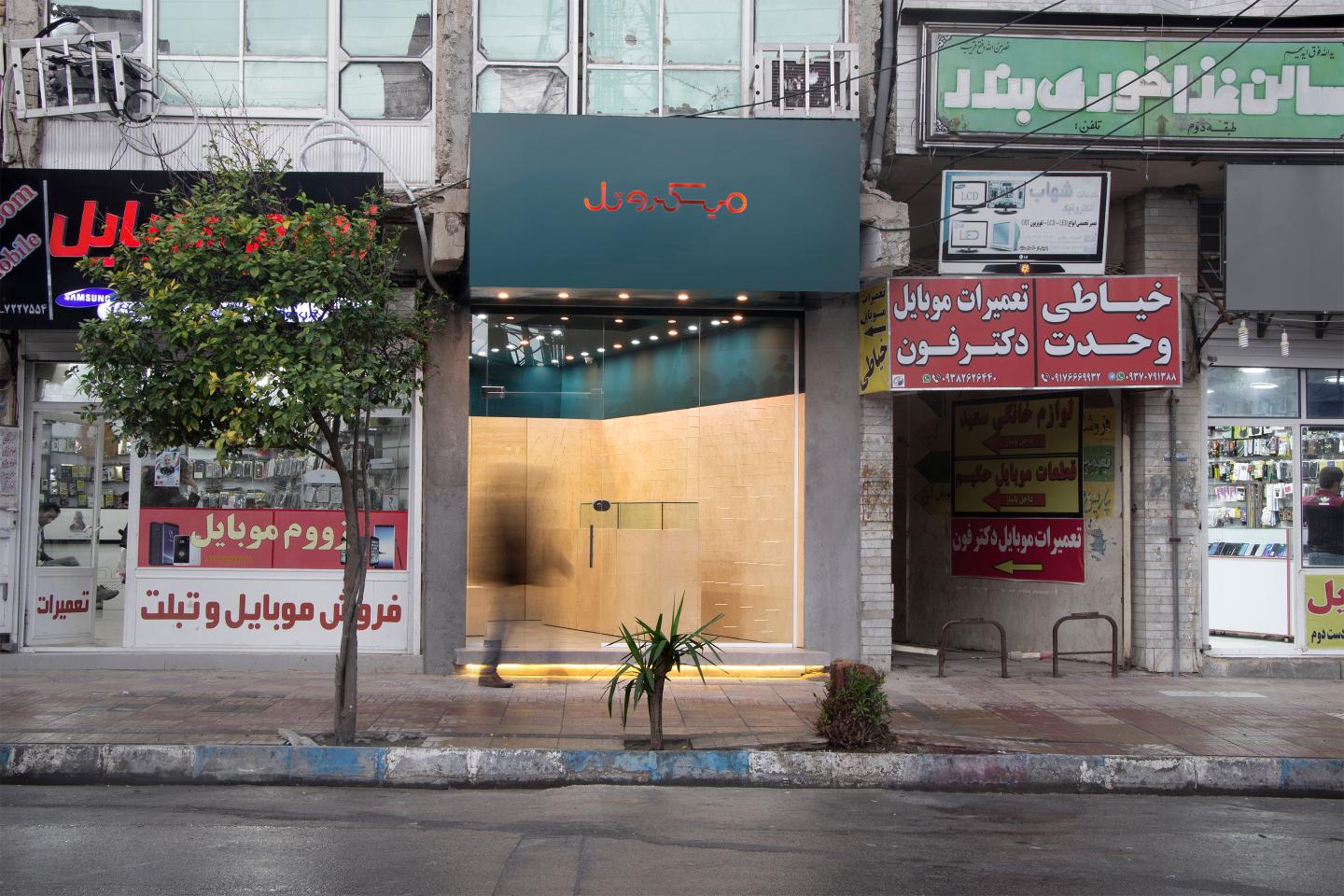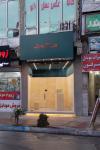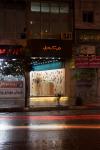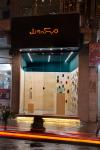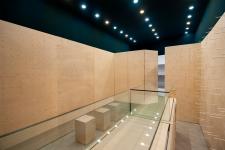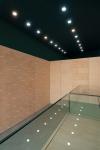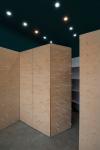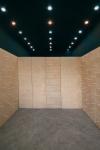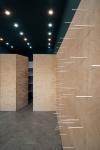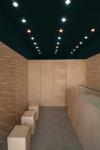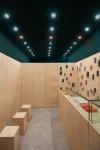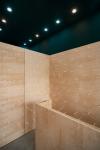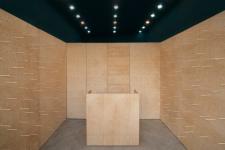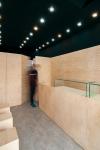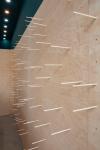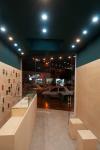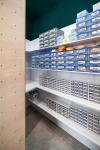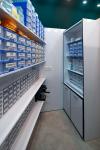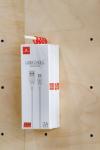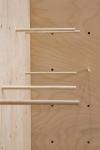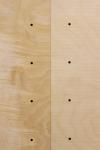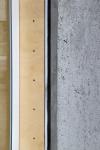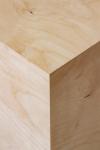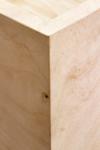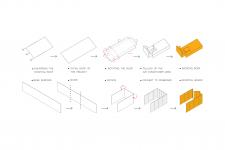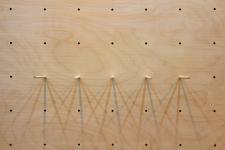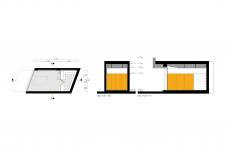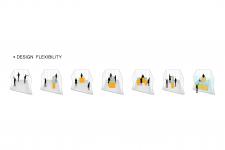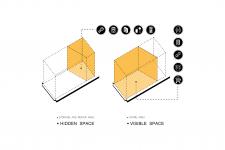Microtel is an effort to create a flexible build that allows the user to present their different reading from the space. The spatial organization of the project is based on the dual "visible" and "hidden" and the definition of different uses of the space in this dual is looking for an economic solution to reduce expenses and speed up the process of implementation. At the same time, the project tries to minimize its borders with the city (only one glass facade) and inform it’s user free of uproars, advertise and turbulence the urban walls.
The project has a quiet presence on the urban wall and presents itself to the city only with a brief sign that extends from the roof to cover the installation parts.
In this duality, the storage space of parts and accessories and the repair section, which does not need to be seen by the audience, have been transferred to the "hidden" part, and affordable materials have been used to cover it and implemented with simple techniques. The sales and display of products section that have a direct connection with the audience and are directly related to the city was transferred to the "visible" section. This part includes perforated plywood boards that with the arrival of wood (ice cream stick) becomes a space for displaying products and increases the productivity of the space due to its maximum flexibility. Counters and showcases are also moving components of the visible space that move easily.
Architects: Chenin Studio
Lead Architects: Mohammad Moazeni
Architect Assistants: Adib Eshragh
Date: 2016
Area: 24 sqm
Executive team: Mohammad Moazeni, Adib Eshragh
Graphic : Sahar Ebrahim Nejad
Photos: Mohammad Moazeni
Budget: $250
Location: Bandar Knagan, Iran
2019
2019
In this duality, the storage space of parts and accessories and the repair section, which does not need to be seen by the audience, have been transferred to the "hidden" part, and affordable materials have been used to cover it and implemented with simple techniques. The sales and display of products section that have a direct connection with the audience and are directly related to the city was transferred to the "visible" section. This part includes perforated plywood boards that with the arrival of wood (ice cream stick) becomes a space for displaying products and increases the productivity of the space due to its maximum flexibility. Counters and showcases are also moving components of the visible space that move easily.
Architects: Chenin Studio
Lead Architects: Mohammad Moazeni
Architect Assistants: Adib Eshragh
Date: 2016
Area: 24 sqm
Executive team: Mohammad Moazeni, Adib Eshragh
Graphic : Sahar Ebrahim Nejad
Photos: Mohammad Moazeni
Budget: $250
Location: Bandar Knagan, Iran
